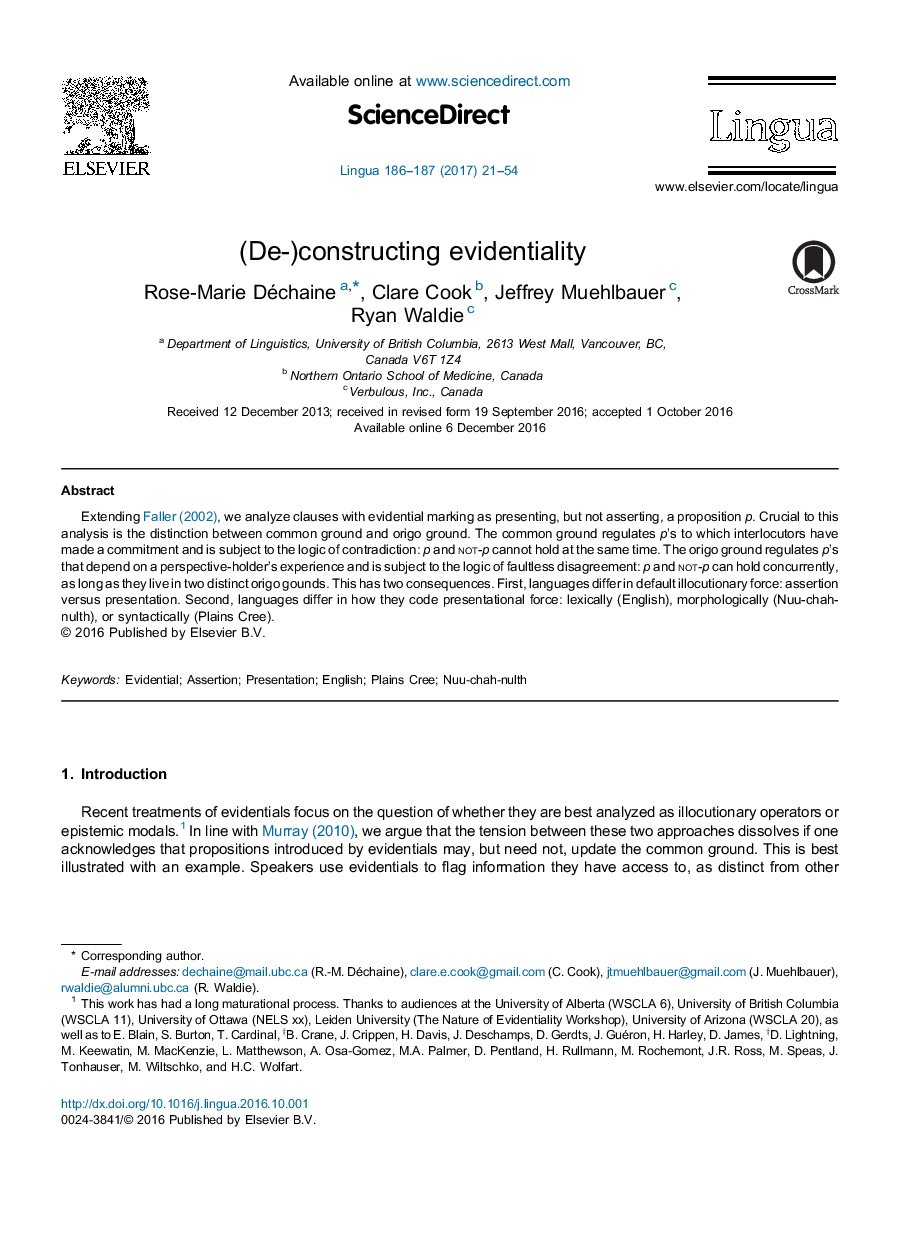| Article ID | Journal | Published Year | Pages | File Type |
|---|---|---|---|---|
| 5043053 | Lingua | 2017 | 34 Pages |
â¢Evidentials present, rather than assert, a proposition.â¢Presented p's update the origo ground, asserted p's update the common ground.â¢Presentative force can be coded lexically, morphologicallly, or syntactically.
Extending Faller (2002), we analyze clauses with evidential marking as presenting, but not asserting, a proposition p. Crucial to this analysis is the distinction between common ground and origo ground. The common ground regulates p's to which interlocutors have made a commitment and is subject to the logic of contradiction: p and not-p cannot hold at the same time. The origo ground regulates p's that depend on a perspective-holder's experience and is subject to the logic of faultless disagreement: p and not-p can hold concurrently, as long as they live in two distinct origo gounds. This has two consequences. First, languages differ in default illocutionary force: assertion versus presentation. Second, languages differ in how they code presentational force: lexically (English), morphologically (Nuu-chah-nulth), or syntactically (Plains Cree).
